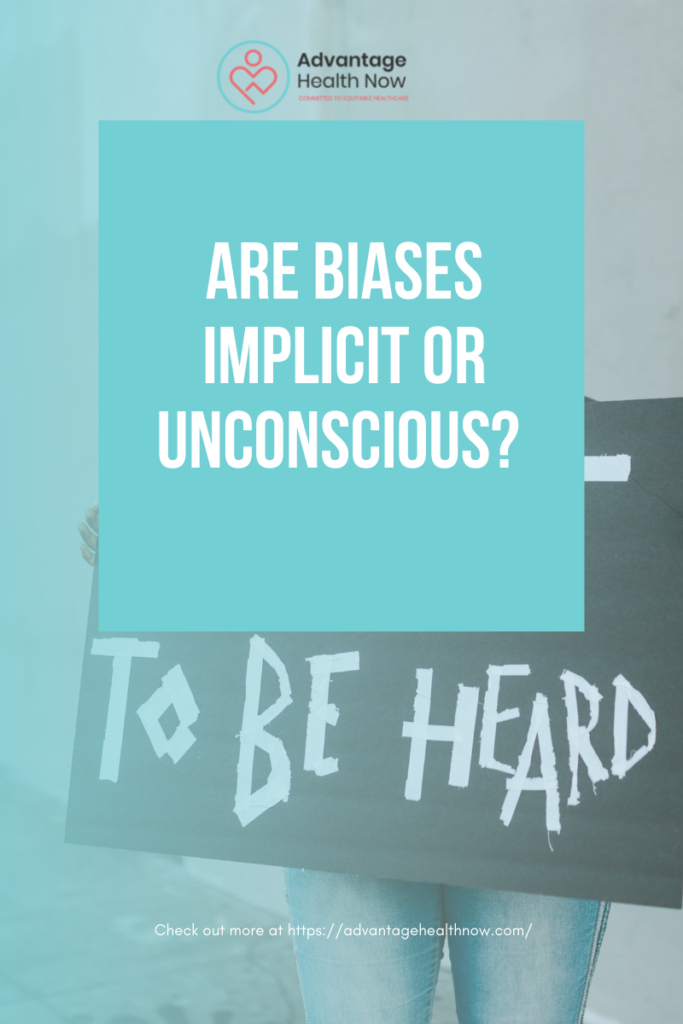
Are biases within the workplace really implicit or unconscious or, are they behaviors that need immediate accountability?
I do not know about you, but I know for me when dealing with diversity, equity, and inclusion (DE&I), I do not like to mince words. There are so many clichés and terms in the DE&I space that lend opportunities for the lack of accountability for poor behavior. What I am getting at is, why terms like implicit and unconscious are being used in the workplace? Why is there a concern of someone’s intent when their behavior is in question? There are rules of engagement in the workplace and I can tell you, there is supposed to be zero space for sexism, racism, elitism, biases and beyond. Before we go further, just to let you know a little something about me that you may not have known. I am an academic byproduct of Critical Race Theory (CRT) with a published thesis centered in CRT, **I was well aware of implicit bias and unconscious bias before they were a “thing” in the mainstream space.**
Are Your Biases Implicit or Unconscious?
Now these two terms are thrown around with ease to help buffer poor behavior. They’re often used to make those that have made disgusting statements centered in race, gender, sexual orientation… Ya know, to give them a pass to harm individuals by presenting it as unintentional behavior. Well, I am here to break through the dangerous use of those terms and ask you, what are you going to do about your biases (albeit implicit or unconscious)? Not meaning to harm someone does not absolve you from the harm; the harm is still there and what are you going to do about it?
My Experience With EXCUSED BIASES
Let’s start this off understanding that I am a Black woman with curly hair that worked in Corporate America for over 10 years (I will not disclose my age) and I have many experiences where individuals have had EXCUSED BIASES. Now, there is one recent experience that I must share because it is in the forefront of my mind… Hold on to your socks!
Story Time: Ok, be patient with me, there is a method to my madness. Prior to me becoming an entrepreneur I worked a 9-to-5. At this specific organization (I do have some class so I will not mention the organization or names of individuals), I remember having monthly 1:1 meetings with an executive I did not report in to. Every month, the executive would make comments centered in race and specifically there were comments about Black people; I would dread these meetings. In the final meeting I had with this executive, he mentioned that there were not a lot of Black people (specifically Black women) in IT and because of his academic experiences he presented himself as a subject matter expert (he stated there were not a lot of Black women/people in his cohort so he therefore ASSUMED there were not a lot of Black people in tech).
After I collected my thoughts and remembered that I am a professional, I responded to him letting him know that I belong to a Facebook Group with over 10,000 Black women that are IT professionals (many are Engineers). Many of these women work for top tier IT organizations and are leaders within the field.
Within 48 hours, I informed Human Resources about an executive leader making continual statements (the aforementioned experience was not the first one) that was inappropriate for the workplace. Do you know that following their 24-hour investigation, they confirmed in writing, “he did not mean to hurt your feelings.” Never did I express hurt feelings, I expressed behaviors that were centered in race bating by an executive leader that could be seen as harassment. So, do we call those behaviors unconscious or implicit or do we call it what it is and hold people accountable for what they do? What I suggest to my clients is to educate them without a cushy pillow for them to fall on, inform them that those behaviors are not acceptable, and then hold them accountable.
What’s Next: Accountability?
I often wonder, when will holding individuals accountable for their biases become the industry norm? Is it the industry norm for your employer? I know if it is not the norm, you will probably not feel comfortable in saying so. Nonetheless, I encourage you to rid those statements of implicit and unconscious when discussing biases from your vocabulary.
Remember, we are not here to protect the feelings of those that cause harm to historically marginalized communities. Hold them accountable for their actions with the goal of protecting the vulnerable.
Get to Know Alicia Better
Mrs. Alicia Coulter, MPH, MSW has over 15 years of experience in the Diversity, Equity, and Inclusion space. Alicia has provided her expertise to Magnet Hospitals, Fortune 10 Healthcare Companies, and Non-Profits alike. Her academic experience includes a bachelor’s degree from University of Phoenix, Master of Social Work centered in Critical Race Theory from California State University, Dominguez Hills, and a Master of Public Health from University of California, Los Angeles. She is Co-Founder of Advantage Healthcare Now and is committed to diversity, equity, and inclusion.
Contact me for speaker panels and an assessment of your organization’s Diversity, Equity, and Inclusion platform! Especially if you do not already have one!
